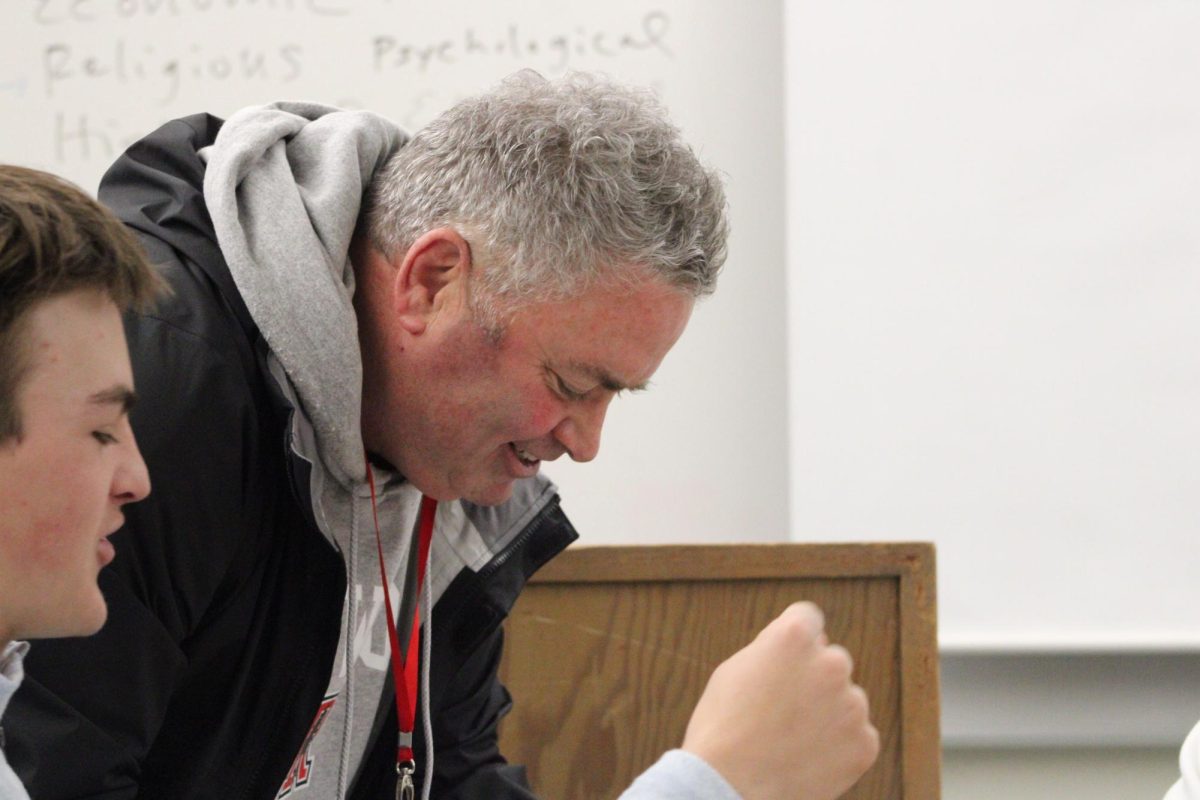Throughout the years, the Bark has received prestigious awards for exemplary student writing. Many Bark alumni continue to utilize the skills they developed in the program as a part of their careers.
Bark alumni apply what they learned throughout their career paths, whether that is in the journalism field or other ventures. According to Redwood alumnus Eric Schmitt, these skills became most relevant when he started his journey towards becoming a journalist for the New York Times.
As a senior writer for the New York Times, Schmitt has been covering terrorism and national security issues since 1983. After graduating from Redwood in 1978, Schmitt attended Williams College in Massachusetts to study international relations.
After graduating from Redwood and enrolling at Williams College, Schmitt spent one year writing for the Tri-City Herald newspaper, based in Washington, until graduating in 1982. The following year, Schmitt was offered the job of clerk reporter for the New York Times. Through this opportunity, Schmitt said he gained insight on what it was like to work for a professional newspaper. His starting position allowed Schmitt to further his involvement with the New York Times and eventually become a full-time reporter.

“I learned how to write quickly and a lot. From there, I kind of moved my way up in the paper working as a news clerk in Washington and New York and eventually getting hired as a full time business reporter,” Schmitt said.
In 1990, Schmitt moved back to Washington D.C. to cover the military and national security issues. He has continued writing for the New York Times for over 35 years.
When Schmitt started his journey in professional journalism, he was required to choose between print, TV and radio journalism. According to Schmitt, people expect journalists to collaborate when working for the New York Times.
“I think today’s young journalists come much more equipped in video, audio and in their writing,” Schmitt said.
Schmitt also believes the way stories are told and the constant news cycles make journalism an exciting and rewarding profession.
“Journalism is going through a golden era, partly because there are so many great stories out there and so many new and interesting ways to tell them,” Schmitt said.
Schmitt is not the only Bark alum to continue journalism to the professional field. Attending Redwood the first year it opened as a sophomore, alumnus Jef Skov was co-editor in chief of the Bark as a senior in 1961 with Rick Sims. He applied his journalistic skills into his current career in broadcasting.
According to Skov, the majority of the Bark’s first issues were most focused on introducing the program and talking about school-related stories. Skov said that the paper rarely covered any controversy.
“Reflecting on what we did then and what [Bark reporters] do now, I’m very jealous of the huge array of tools [they] have to use these days and the wide range of subjects [Bark] can cover,” Skov said.
According to Skov, in those days, the Bark covered student activities, profiles, sports, dances and rallies. Controversial issues such as politics, racial equality, women’s rights, same sex marriage, gay rights and drugs were seldom considered news stories in his days. The most political issue that the Bark wrote in the those years was during the Kennedy vs. Nixon election. Skov said that the Bark profiled both candidates, but it was very dry and straightforward.
“We didn’t have Twitter and Facebook and Snapchat, so if you were an athlete, for instance, you were excited to see your name or maybe even your picture in print because it wouldn’t show up any place else,” Skov said.
According to Skov, in 1961, the Bark would take the written stories to the district print shop at Tamalpais High, where papers were printed for Tam, Drake and Redwood.
After graduating from Redwood, Skov attended Stanford for a year and a half, but then dropped out due to financial circumstances.
He then went on to work in broadcasting, which Skov has pursued for 30 years. Along the way, Skov has worked at KTIM radio station in San Rafael and another radio station in San Francisco called KSFO.
According to Skov, although the presence of physical newspapers plays a smaller role in society today, journalism plays a crucial role in day-to-day communication.
“I think journalism plays a huge role in people’s lives today. I think what you can do with the research that the internet gives you is absolutely priceless. The news media is absolutely essential in our democracy and any attempt to take that away should not be allowed,” Skov said.
Although not all Bark alum embark into journalism as their career path, journalistic skills can provide a strong foundation for other areas of work, according to David Rosenthal, a 1983 Redwood graduate. Rosenthal was an editor for the girls’ sports teams, as well as a writer for the Tiburon Ark during his junior and senior year. Rosenthal said his best memories on the Bark occurred when the paper was laid out during paste-up.
“Everything was basically done on a typewriter and then sent off to a printer. The technology we used were typewriters, pens, razor blades and tape recorders,” Rosenthal said.

According to Rosenthal the Bark in those years was something that many students wanted to be apart of. Rosenthal remembers Donald Brown being a sought after teacher and having talented writers in his Advanced Journalism class.
After graduating from Redwood, Rosenthal studied economics at UC Berkeley and then transferred to the University of San Diego to study criminal law. After spending four years studying law, Rosenthal realized that it wasn’t his true calling.
For the past 20 years, Rosenthal has practiced legal graphics through his own business, working with trial lawyers to visually communicate their cases to judges and juries. According to Rosenthal, he creates visual aids like maps, timelines, technical illustrations and 3D animations.
“When I decided to get out of law, I read one day about some woman who used to be a lawyer and she had just hired this team of graphic designers and I thought it was really cool how I could marry my law experience into the form of art,” Rosenthal said.
According to Rosenthal, being a journalist taught him analytical skills and how to pry for information even under difficult circumstances. Rosenthal’s belt of investigative tools helped transform him from an aspiring writer to a self-made businessman.
“I think that the Bark taught me to go a little bit beyond the comfort zone and not accept what people say as the absolute truth, but to dig a little deeper,” Rosenthal said.












!["I knew I wanted to be a writer. I wasn't a good student [at Redwood], but I wanted to be a writer, and I wanted to paint. I'm self-taught in all of it, which gave me an original voice," Paige Peterson said. (Photo courtesy of Paige Peterson’s website).](https://redwoodbark.org/wp-content/uploads/2025/02/ppeterson.png)